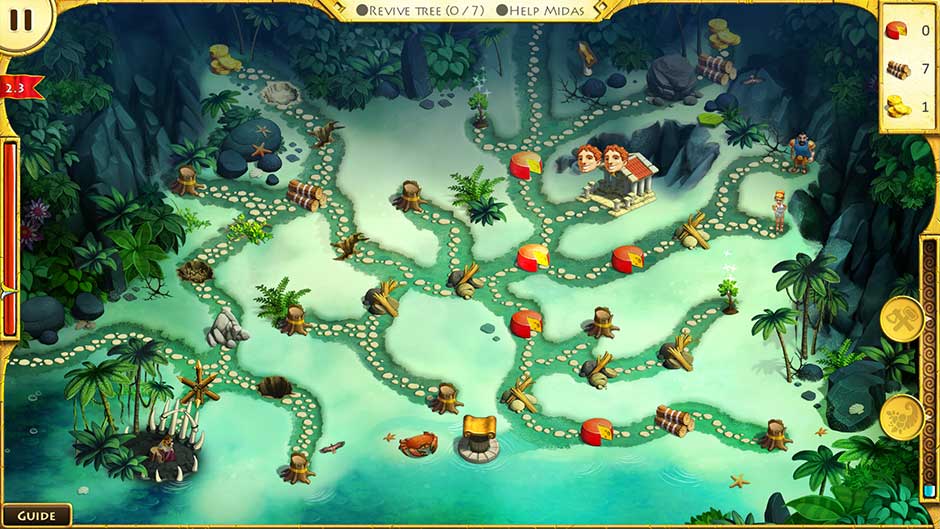

Roman brides wore a special belt tied with the " knot of Hercules", which was supposed to be hard to untie. Hercules received various forms of religious veneration, including as a deity concerned with children and childbirth, in part because of myths about his precocious infancy, and in part because he fathered countless children. Mark Antony considered him a personal patron god, as did the emperor Commodus. The hero was associated with the Aventine Hill through his son Aventinus.

One of these is Hercules' defeat of Cacus, who was terrorizing the countryside of Rome. Hercules had a number of myths that were distinctly Roman. A mild oath invoking Hercules ( Hercule! or Mehercle!) was a common interjection in Classical Latin. The Etruscan form Herceler derives from the Greek Heracles via syncope. Hercules was a favorite subject for Etruscan art, and appears often on bronze mirrors. The Latin name Hercules was borrowed through Etruscan, where it is represented variously as Heracle, Hercle, and other forms. In feeding the child from her own breast, the goddess inadvertently imbued him with further strength and power.īaby Hercules strangling a snake sent to kill him in his cradle (Roman marble, 2nd century CE, in the Capitoline Museums of Rome, Italy). She then gave the infant back to Minerva and told her to take care of the baby herself. Juno suckled Hercules at her own breast until the infant bit her nipple, at which point she pushed him away, spilling her milk across the night sky and so forming the Milky Way.

In one version of the myth, Alcmene abandoned her baby in the woods in order to protect him from Juno's wrath, but he was found by the goddess Minerva who brought him to Juno, claiming he was an orphan child left in the woods who needed nourishment. Juno then sent serpents to kill him in his cradle, but Hercules strangled them both. Juno sent two witches to prevent the birth, but they were tricked by one of Alcmene's servants and sent to another room. In Roman mythology, although Hercules was seen as the champion of the weak and a great protector, his personal problems started at birth. This article provides an introduction to representations of Hercules in the later tradition.
#12 LABOURS OF HERCULES GAME WALKTHROUGH HOW TO#
Hercules is a multifaceted figure with contradictory characteristics, which enabled later artists and writers to pick and choose how to represent him. In later Western art and literature and in popular culture, Hercules is more commonly used than Heracles as the name of the hero. The Romans adapted the Greek hero's iconography and myths for their literature and art under the name Hercules. In classical mythology, Hercules is famous for his strength and for his numerous far-ranging adventures.

Hercules ( / ˈ h ɜːr k j ʊ ˌ l iː z/, US: /- k j ə-/) is the Roman equivalent of the Greek divine hero Heracles, son of Jupiter and the mortal Alcmene. Hercules battles Achelous, metamorphed into a serpent, 1824, by François Joseph Bosio.


 0 kommentar(er)
0 kommentar(er)
